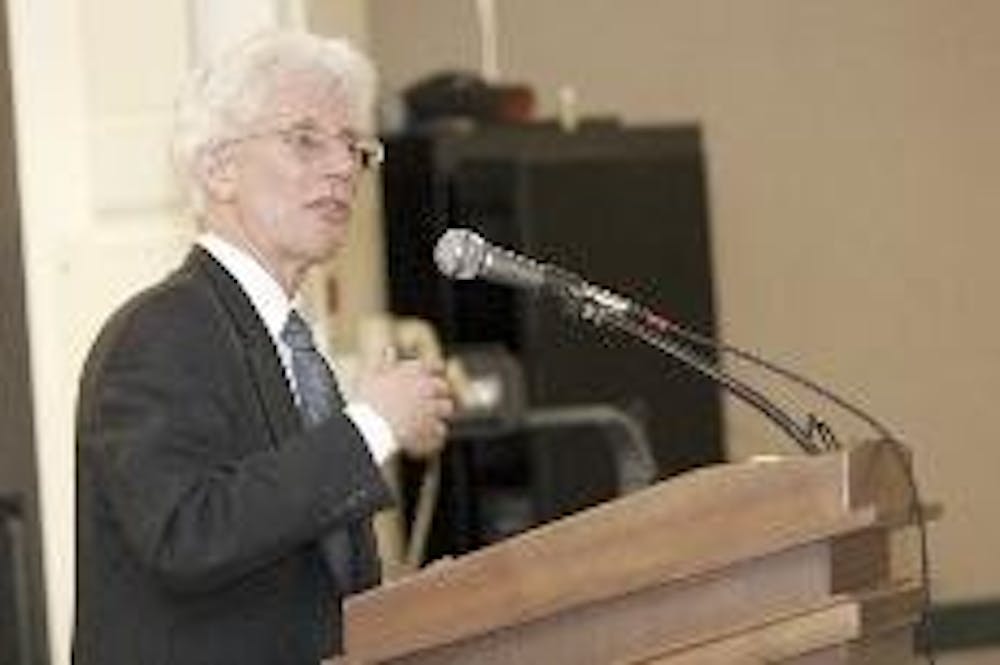
William Galston, former domestic policy adviser to Bill Clinton, speaks Tuesday evening in 128 Pearson Hall.
Former domestic policy adviser to President Bill Clinton, William Galston, spoke to Miami University's community Tuesday, April 17 about the role of the Internet in how citizens are now able to learn about and participate in politics.
Galston told listeners to think about what politics were like in the 1950s and how much it has changed over the last 50 years. He spoke about the Internet changing politics as it continues to develop because it is only in progression, not completion.
"The Internet is in its adolescence - it has energy, excitement and confusion," he said.
Galston also gave listeners facts about the increase in use of the Internet and its impact on government. He reported that 70 percent of adults use the Internet and there has been a great increase in the millions of people who use the Internet daily to get their news and get involved in politics.
Galston also said that there has been an increase in the use of Internet blogs as a source for voicing and spreading individual opinions.
"The Internet is a very, very powerful tool for the mobilization of the like-minded," he said.
Galston added that the Internet is a place where people can find each other, get together virtually and trade information - although there are potential drawbacks in having a forum where users are able to voice controversial opinions.
Galston has been in several positions as a political philosopher, author, presidential adviser, teacher and political theorist.
Assistant political science professor Brian Danoff said Galston's speech, which was titled "Promise and Peril of Digital Democracy," was part of the Digital Democracy Series that included speaker Cass Sunstein earlier this semester.
According to Danoff, the two scholars were picked because they have interesting perspectives on the ways in which the Internet can both enhance - but also potentially diminish - the quality of democratic deliberation among American citizens.
Enjoy what you're reading?
Signup for our newsletter
"While students and faculty are always working with digital technology, this will get them to think about the effect of technology on democracy," Danoff said.
Students posed questions to Galston about concern that blogs will cause an increase in extremism for both political parties, a concern that Sunstein spoke of earlier in the semester. Galston said that if these groups were only viewing a limited number of Web sites, then Sunstein would be right in his concern. Yet Galston feels that Internet users are viewing a variety of blogs and Web sites, leaving themselves open to controversial views.
Sophomore communication pre-major Bethany McCann thought Galston was interesting and had a lot of good information and opinions for students to consider.
"He really made me think about technology in a new way," McCann said. "It was really interesting to learn about how technology can affect politics. It was great to hear from someone with real-life experience."




